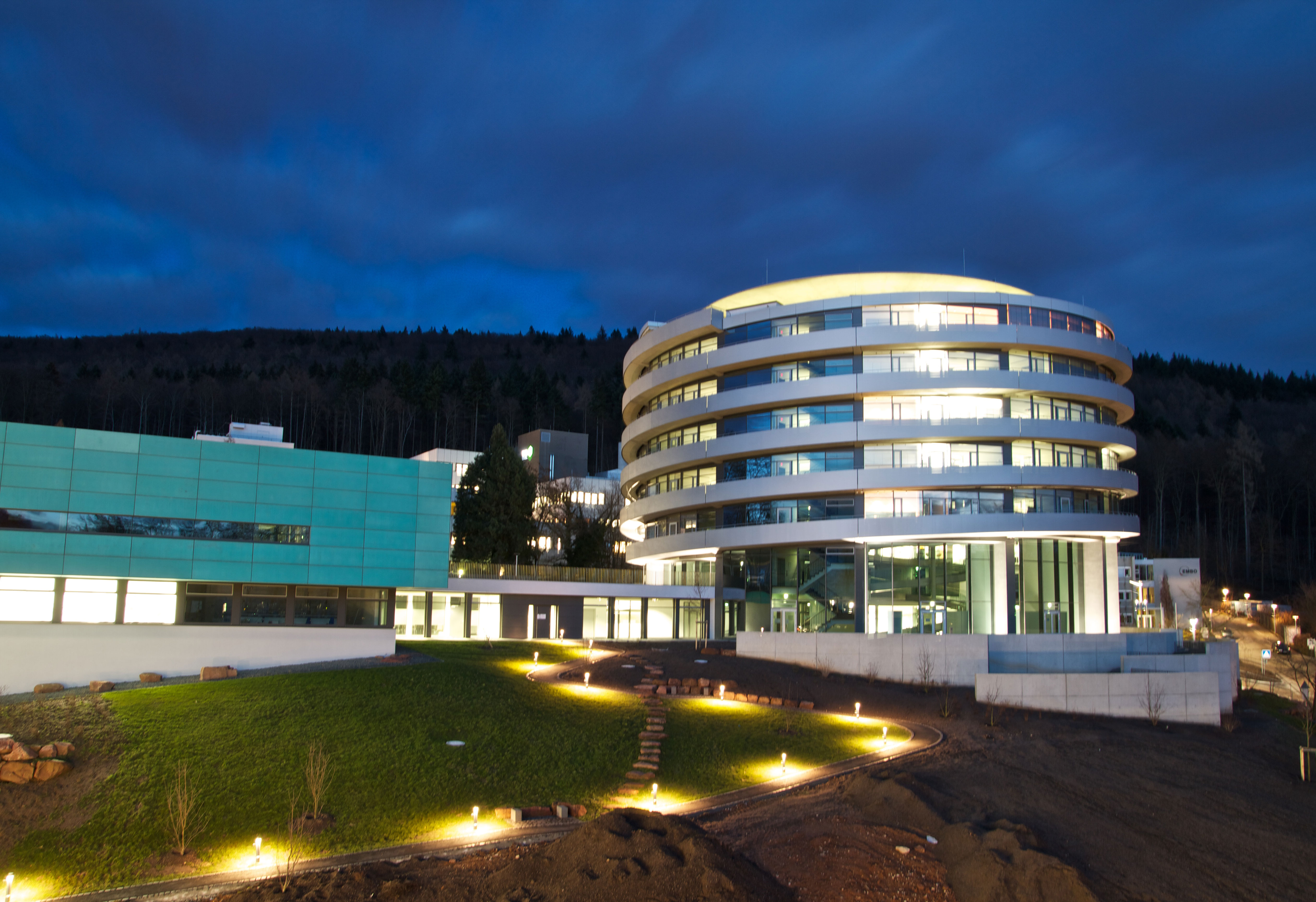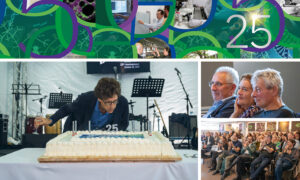
40 years of Courses and Conferences
How the work of the EMBL courses and conferences has changed over the last 40 years, today welcoming approximately 7300 attendees annually.

EMBL has been training scientists throughout its history. The first recorded practical course was hosted at EMBL before the laboratory buildings in Heidelberg were officially inaugurated – an EMBO Course in Electron microscopy of nucleic acids in 1977. Today, EMBL hosts over 7000 attendees to courses and conferences every year.
For a long time, EMBL courses and conferences were organised by the scientific community. That, of course, was back when all EMBL employees could fit into a single room. But today over 35 dedicated staff at EMBL Heidelberg and EMBL-EBI Hinxton are responsible for the smooth running of the ever-expanding EMBL-wide course and conference programme.
Meetings and conferences here at EMBL have created a community and people come back for that community
One of the first non-scientific staff to work on EMBL events was EMBL Alumna Nelly van der Jagt. She remembers how in 1983 she began working for the EMBL Director General’s office and soon found herself juggling four roles: personal assistant to the DG and the Administrative Director, as well as organising practical courses for scientists and the fledgling EMBL International PhD Programme.
Even then, however, EMBL staff went the extra mile for conference attendees and Nelly remembers an instance when a couple arrived at the conference registration desk with a child they needed taking care of for the day. “I phoned Konrad Müller, then Head of Personnel, who promptly drove the child to the European school in Karlsruhe,” says Nelly. “After he came back, the boy spent the rest of the day painting in my office until his parents picked him up.” Later the Kinderhaus at EMBL Heidelberg was set up, and today conference attendees can apply to use the facilities while attending our conferences.
The growing professionalisation of the Course and Conference office is something that many attendees have noticed over time. “This,” says Iain Mattaj, EMBL Director-General, “takes a huge load off the scientific organisers and lets them focus on what they are good at: selecting scientific topics, speakers and participants who will combine to make an exciting meeting.”
The growth of courses and conferences continues
Adela Valceanu has seen that change, since she started working for the Course and Conferences Office at EMBL Heidelberg in 2008. “When I started working at EMBL we were working in a container before the completion of the Advanced Training Centre (ATC) in 2009,” she remembers. “At that time, we were a team of four: the head of the Course and Conference Office and three other people.” The ATC has allowed EMBL’s external training programme to expand, currently running 5 times as many events as before the opening of the ATC. Less than 10 years later the team in Heidelberg has grown to twenty people, divided between a courses team, a conferences team, and a marketing team, making sure that every aspect of EMBL events goes smoothly.
Top-class courses are also run at the other EMBL sites in Hamburg, Rome, Grenoble and at EMBL-EBI in Hinxton, UK. In addition, EMBL-EBI also offers Train Online courses for those unable to attend events in person.
The scientific topics covered by the training programme have also changed and multiplied over the years. Juergen Deka, Head of External Scientific Training at EMBL, explains that the programme covers an immense spectrum of molecular biology, spanning the range from molecules to organisms. The majority of the topics result from research carried out at EMBL, but the programme also includes many scientific topics that go beyond the EMBL research portfolio. “These conferences and courses are organised in collaboration with external scientists,”Juergen explains, “which helps create research synergies with the scientists at EMBL.”
You can tell how successful the programme and the team are by the great feedback from participants and organisers. “The meetings and conferences here at EMBL have created a community and people come back for that,” explains Adela. In particular, this year the John Kendrew symposium, happening from November 16 to 17 celebrates the 100th anniversary of Sir John Kendrew, EMBL’s first Director General. The team have spent the whole year advertising this event and will have a lot of EMBL alumni attending.
Then and now
Every year has seen changes, from hand drawn posters and typed out attendance lists to the introduction of digital registrations and a dedicated EMBL Events App. Here are some of the key dates in the evolution in EMBL Events:
- 1977 The first record of a course being held at EMBL Heidelberg – EMBO Course: Electron microscopy of nucleic acids
- 1978 The first EMBL guesthouse opens to house attendees
- 1988 EMBL’s Operon in Heidelberg opens, including a 300 seat auditorium
- 1997 EMBL-EBI industry workshops begin
- 2007 EMBL-EBI launches on-site training programme
- 2010 Grand opening of ATC building, the maximum number of participants is now 466
- 2013 EMBL-EBI South building opens with lecture theatre, training centre, and media studio



